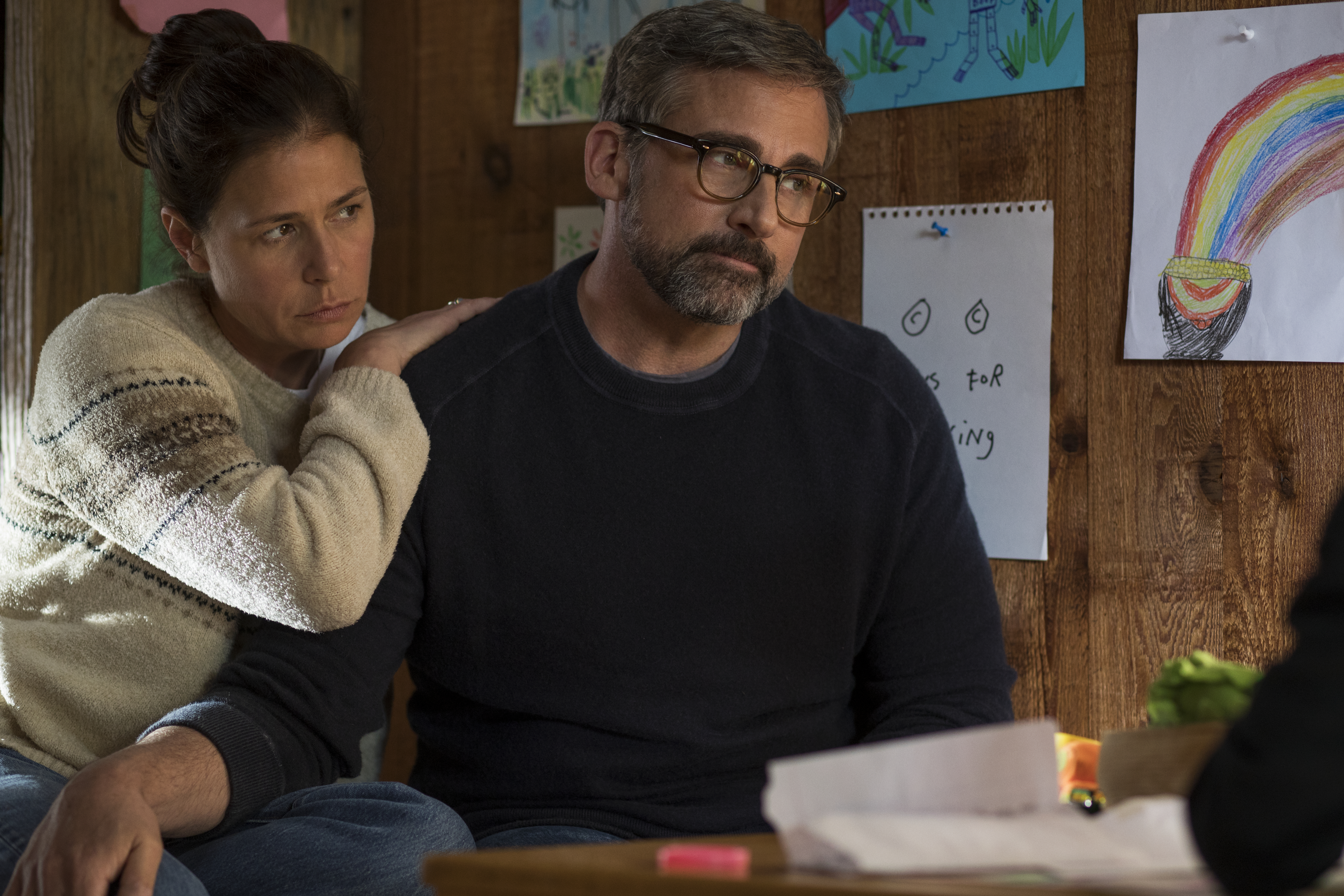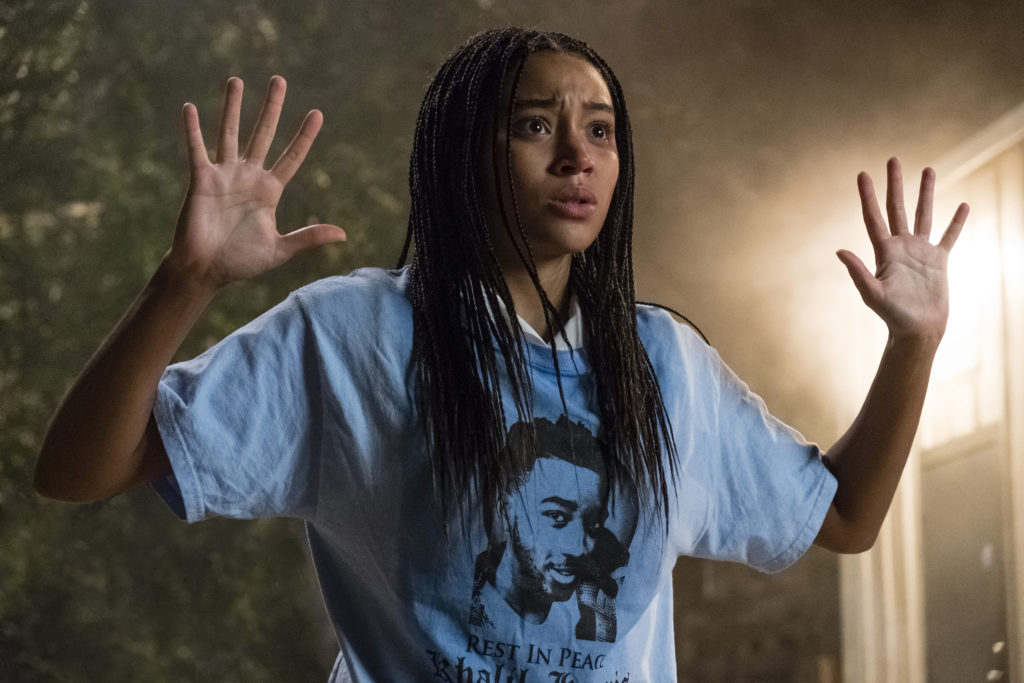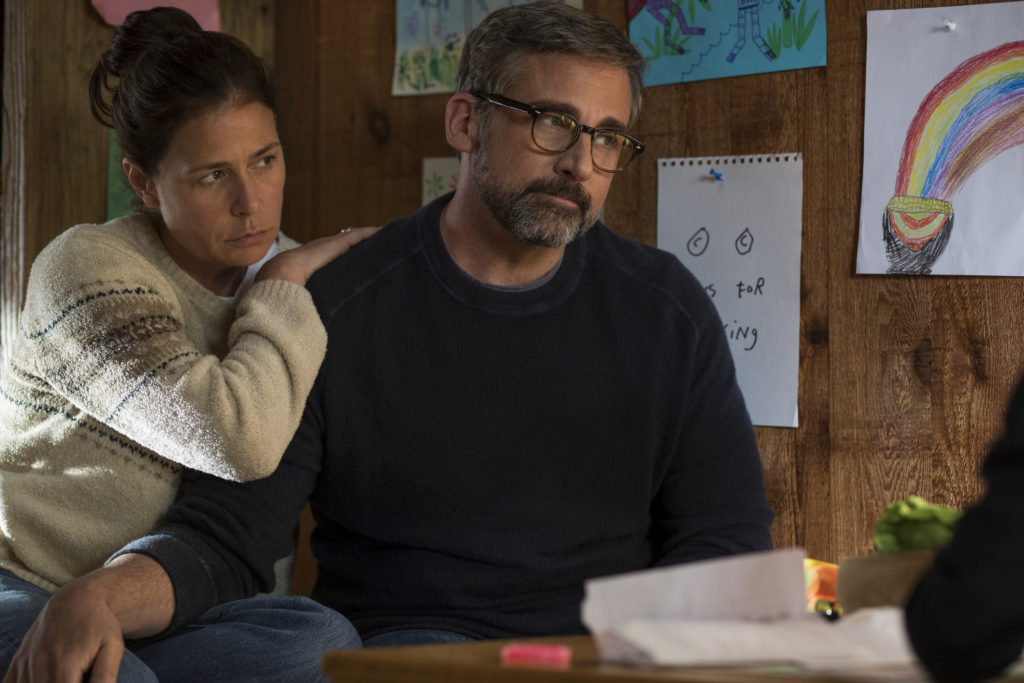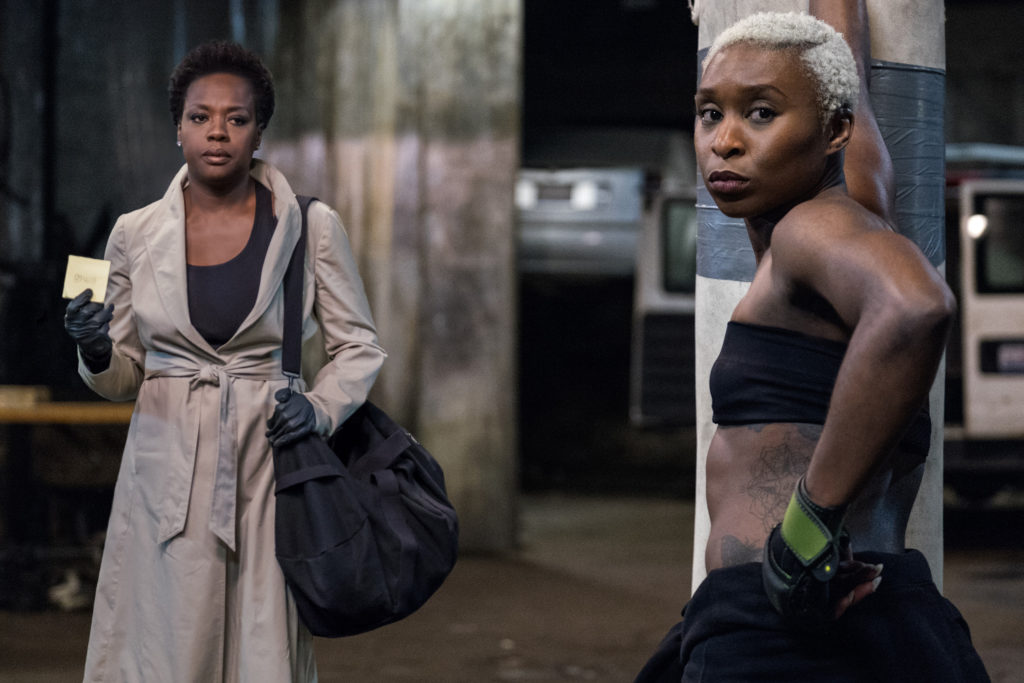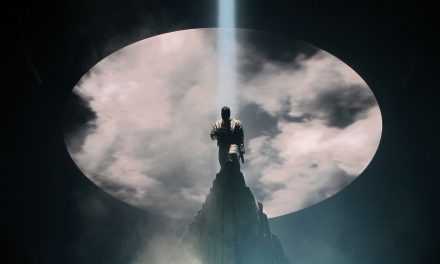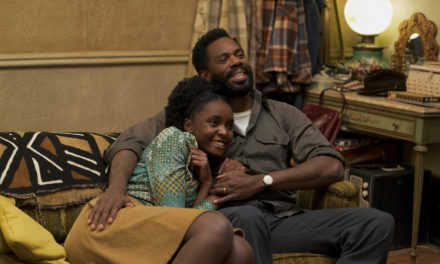This is the third installment of a four-piece series of reviews of the Toronto International Film Festival (TIFF).
TIFF DAY 3
The Hate U Give (B+)
“The Hate U Give,” the film adaptation of Angie Thomas’ eponymous 2013 novel, is about Starr (Amandla Stenberg), a young black girl who testifies as a witness after her friend Khalil (Algee Smith) is fatally shot by a white police officer. Starr wants to hide her involvement in the case from her white Williamson prep school peers and protect her family from King (Anthony Mackie), a hometown gang leader who threatens to harm them if Starr discloses information about Khalil’s gang involvement. It is an informative look at police brutality, internalized racial bias and belonging that boasts a particularly excellent performance from Russell Lynsburg as Starr’s father. Still, I left the theater unsure if the film was made for me.
Starr, alongside her brothers Sekani (T.J. Wright) and Seven (Lamar Johnson), is taught by her parents Maverick (Lynsburg) and Lisa (Regina Hall) how to behave when — not if — they are stopped by the police. Starr cherishes Harry Potter and Tupac’s salient comment on thug life: “The hate u give little infants f***s everybody.” Typically, this kind of representation makes my heart soar. A loving and proud black community? A healthy black couple and present patriarch? A black girl who feels out of place at predominantly white school, loves Harry Potter and pro-black ideology? Buy me a ticket. But the film’s decision to tell, rather than show the audience, all of these elements felt as though the film was trying to convince me to believe in a humanity I already knew black people possess. This, in addition to the ultimate grand jury decision and conversations Starr has with her white peers about blue lives matter were exhausting to watch. I am sure there was a level of comfort I was supposed to find in my ability to empathize with such instances, but it made me uncomfortable that I was one of the few people in that theatre that could. I disliked watching “The Hate U Give” in Toronto for all of the reasons I enjoyed watching “Greenbook” in Toronto. There were too few black faces to grimace alongside.
That is when I realized “The Hate U Give” was not supposed to be a cathartic film about being black in America. It was a meticulous look at what it means to be black in America — for people unfamiliar with the black experience. I am overjoyed that this important story will get the mainstream audience it deserves and that the issues it tackles will provide insight to people who may not search for it otherwise. But I certainly left that predominantly white Scotiabank Theatre thinking, “if I wanted to see black people murdered and antagonized by well intentioned white people, I should have just watched the evening news.”
Beautiful Boy (B+)
I spent the 30-minute window between “The Hate U Give” and “Beautiful Boy” talking to another film critic, which helped diffuse most of my remnant anxiety. But once the credits rolled at the end of of “Beautiful Boy,” I found that my residual anxiety had transformed into a quiet melancholy.
“Beautiful Boy” is the film adaptation of David Sheff’s (Steve Carell) eponymous 2008 memoir, about his efforts to help his son Nic (Timothee Chalamet) overcome drug addiction. The central thread of the film is addiction and the misconceptions that exist around the agency of sobriety. But the film’s beauty lies in its patchwork approach to presenting the Sheff family’s collective triumphs, Nic and David’s disparate, albeit corresponding, anguish and “the role of relapse in recovery.”
The most intriguing element about “Beautiful Boy,” aside from its central father-son story, was its willingness to engage with both familial and personal pain in a way that was not pornographic. Some stories attract people because they offer the opportunity to be sad about something for a few hours. But “Beautiful Boy” dared to operate beyond its sadness and pose questions that implicate the audience in Nic’s recovery. How much can we blame ourselves for the unhealthy habits of loved ones, at what point do we let go? How does our perception of addicts contribute to the toxic environments that push them to use rather than seek help?
Chalamet gives a compelling performance of a young man yearning to be well. However, he has far less dialogue and character development than needed to effectively counter-balance the image of a troubled adult Nic against the boy wonder of his dad’s memories. Additionally, I found myself struggling to believe Steve Carell during crucial scenes. I could not discern if his restraint and stern voice were an accurate representation of David or if he was unable to channel the sort of emotion I anticipated someone in David’s position would clearly emit. This was distracting, considering he is the character with the most screen time.
“Beautiful Boy” is an effective film about family and the the daily struggle of a pleasure addicted mind to choose sobriety. It is a story void of concrete resolution, but full of boundless love.
Widows (B-)
After watching two films about families fighting their own set of demons, I was keen to see what “Widows,” Steve McQueen’s thriller about the wives of deceased heist men, had to offer. In short, both too much and somehow not enough.
When Harry Rawlins (Liam Neeson) and other members of his team are killed during a routine job, their wives Veronica (Viola Davis), Linda (Michelle Rodriguez) and Alice (Elizabeth Debecki) band together to complete a final job and pay off Henry’s’ debts. However, the hitch of the operation comes when the debt collecting/city slicking Manning brothers, Jamal (Brian Tyree Henry) and Jatemme (Daniel Kaluuya), make enemies out of Jack Mulligan (Colin Farrell), the crowned prince of the Mulligan political machine. Jack and Jamal are political opponents in an upcoming election. Jamal can only hope to defeat the long-seated Mulligans with the potential campaign money Veronica and her gang of female heisters attempt to seize from the Mulligan family vault. But it’s likely that if the team can not pull off the job, they will lose Jamal the election and their lives. “Widows” is a suspenseful collection of violent action sequences interwoven with commentary about gender, political power and race. But its inability to ground itself in both the action of its genre and the emotion required for its plot make it an ambitious yet tonally inconsistent film.
There isn’t anything inherently contradictory about an emotional action film. Martin McDonagh’s “Seven Psychopaths” is an excellent example of an action film that tackles grief, race and gender issues like “Widows.” But “Widows” did not consistently work, because the central tragedy, which instigates the film’s conflict, results in little emotional response from the characters and interpersonal vulnerability between the characters. This may be because death outs the men as even less integritous then their wives had imagined resulting in widows who quickly attempt to move on rather than mourn. But even that layer of complexity is not precisely communciated. By attempting to pronounce gritty, clever and dark tonal layers with mostly muted characters, McQueen only translates half of those elements discernibly to screen resulting in a film that at times seems unsure of its own mood and genre.
There may have been an understandable apprehension to having a female-led action film full of sobbing women. And it might have been fine had “Widows” been trying to comment on the different ways people process grief. But the film did not need to be overtly emotional because its leads were women. It needed to be more emotional because the film’s conflict is difficult to become invested in if there appears to be no emotional connection between the characters and their perilous situation. “Widows” was a missed opportunity to dispel the idea that women in film are overly sensitive, rather than simply responsive to their circumstance.
Davis and Kaluuya by far deliver the film’s most gripping performances about individuals scorned and now on the wrong side of the law. Additionally, the film’s ultimate twist has intriguing points to make about death and deceit being life’s true betrayers. But overall, “Widows” would have been stronger had it been integritous to the bereavement of its heroes. Vin Diesel’s vague blatherings about family cannot be the peak emotion achievable in the action genre. McQueen could have taken different risks.
A&E Editor | adesola.thomas@emory.edu
Adesola Thomas (20C) is from Hampton, Ga., a place she refers to as "the land of cow pastures." She is a double major in political science and English. She enjoys cooking, long scenic walks and looking at pictures of black labs on the internet. The first song Adesola ever learned how to rap all the way through was Kanye West's "Herd Em' Say" which she now feels mildly conflicted about. Adesola brings up Greta Gerwig's "Lady Bird" at least once a day and wrote every one of her college admissions essays about the social impact of "Saturday Night Live." She can hide up to twelve pencils in her afro and enjoys writing about people and art.

